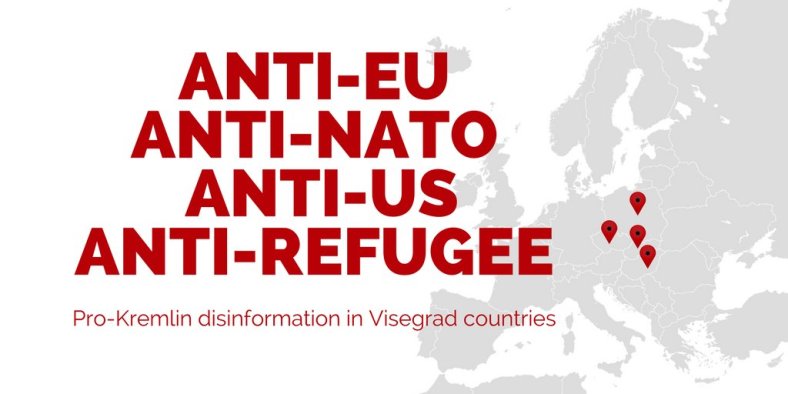
I’ve just started J. J. Patrick’s “Alternative War” in which, to quote the publisher,
“former police officer turned investigative journalist James Patrick tackles Russian interference in the UK’s Brexit referendum and the US election of President Donald Trump head-on, exposing the reality of the third world war in the face of fake news and sophisticated disinformation campaigns…
Alternative War exposes the depth and complexity of a hybrid world war and captures the methods used to profile and manipulate populations in order for Russia to emerge victorious. The book leads us to question everything about Western regulation and enforcement, setting accountability at the highest levels while empowering the people everywhere to help ensure the world is never taken by surprise again.
I’ve been following James Patrick on Twitter for some time and have seen him predict dismal events related to Trump and Brexit with depressing accuracy, so I decided to see what I’d learn when he has a whole book to explain things.
The first thing I learned is that NATO and the EU are already very much aware that they are engaged in a covert struggle with Russia and others. The Finns, who have a long history of dealing with Russian aggression, have taken the lead and this month, with backing from the EU, NATO and a dozen States (including the UK and the USA), have opened the European Centre of Excellence for Countering Hybrid Threats in Helsinki.
The Hybrid CoE believes
We live in an era of hybrid influencing. There are state and non-state actors that are challenging countries and institutions they see as a threat, opponent or competitor to their interests and goals. The range of methods and activities is wide: influencing information; logistical weaknesses like energy supply pipelines; economic and trade-related blackmail; undermining international institutions by rendering rules ineffective; terrorism or increasing insecurity.
Hybrid threats are methods and activities that are targeted towards vulnerabilities of the opponent. Vulnerabilities can be created by historical memory, legislation, old practices, geostrategic factors, strong polarisation of society, technological disadvantages or ideological differences. If the interests and goals of the user of hybrid methods and activity are not achieved, the situation can escalate into hybrid warfare where the role of military and violence will increase significantly.
Hybrid tactics have been under discussion, in particular, since the conflict in Ukraine and the ISIL/Da’esh campaign in Iraq. Hybrid threats have a connection to both Eastern and Southern challenges. In order to meet the challenges, it is important to develop integrated national responses, including threat analysis, self-assessment of vulnerabilities and comprehensive security approach. An integrated international response – including EU and NATO efforts – is needed to support the assessment of threats and vulnerabilities as well as coordinated action.
What does this mean?
Imagine you were an ex-KGB leader of Russia, with a history of fierce enforcement of total power by any means necessary. Imagine you felt threatened by an ever-expanding NATO and an increasingly united and prosperous Europe supported by the United States who’s President had recently manipulated oil prices to bring your economy to its knees. How would you proceed?
In an age of Hybrid warfare, you might start by doing what you could to make your enemy weaker: undermine the authority of US President, push the US into isolationism, separate the UK from the rest of the EU, undermine the liberalism of the EU by using your military power in Syria to send wave after wave of refugees to Europe while sponsoring right-wing groups in France, The Netherlands, Hungary and Czech to incite anti-migrant hatred.
You would achieve these aims through using social media to spread disinformation and promote hatred. You might seek to influence elections by creating a bot army of supporters for those you think will spread division and by channelling funds to specific campaigns. Your campaign would be coordinated across countries but each country would believe they were facing a local issue, like Brexit or a Presidential election and would not see the threat. Individuals who started to understand what was going on would be labelled as conspiracy theorists, unpatriotic internationalists and would be pilloried on social media. The boundary-free nature of the Facebook and other social media platforms would mean that no one nation State could respond to the threat alone.
Scary isn’t it?
The EU thought so. In April 2016 they produced the “Joint framework on countering hybrid threats – a European Union response,” paper. Now we have the Hyrid CoE coordinating the fight back.
We also have EU Mythbusters who are dedicated to countering disinformation by providing piece like this one from the thinks tanks in Europe

What surprises me is how little of this makes the news in the UK. I can see that the print media, owned by billionaires who are implicated in these hybrid attacks, would not want to publicise the fight but why am I not seeing articles on the BBC or Sky News?
Perhaps they think it’s too complicated to explain. Perhaps they think it’s not news. Whatever reason they give themselves, I’m sure the Kremlin is very happy with them.

 1
1









